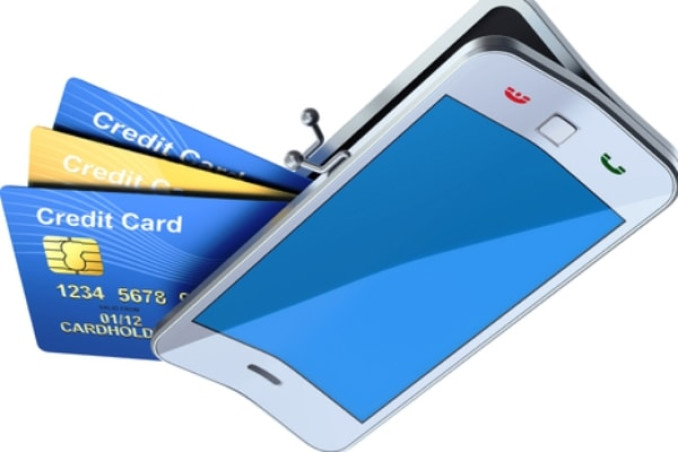Mobile money transforms banking in remote Africa

In his annual letter Gates Notes released earlier this year, Microsoft founder and philanthropist Bill Gates wrote about the impact smart phones and mobile banking will have in the next 15 years. He observed that “digital banking will give the poor more control over their assets and help them transform their lives and by 2030, two billion people who don’t have a bank account today will be storing money and making payment with their phones”.
Ritesh Anand Column
In many developing countries, a significant proportion of people do not participate in the formal financial system. They have no bank accounts, no credit cards, and no insurance. In Sub-Saharan Africa, just 34% of adults have any sort of formal financial account, according to the World Bank’s Global Findex; in South Asia the number is 46%. The numbers are even lower among the poorest residents.
One of the main reasons for this large unbanked population in Africa is geographical inaccessibility and poor infrastructure, with many of the unbanked living in remote rural areas. This, combined with the high cost of banking services and a lack of financial education and understanding, creates very high barriers to banking for poor rural populations.
However, even in some of the most remote areas, most people have a cellphone.
“In some of the least developed regions, such as parts of Sub-Saharan Africa, there are much higher levels of mobile access compared to other basic service, such as electricity, sanitation and financial services,” according to trade association GSMA’s 2014 Mobile Economy report.
For example, in Nigeria 56 million people live without access to electricity, and 38 million live without access to clean water. But roughly 90% of the population has access to cell network coverage, which connects them to health, banking and other services through their cellphones. In fact, more than 16% of people in the region say they use their phones to pay bills or receive money, compared to 3% worldwide, which is one way of fighting the problem of a large “unbanked” population.
Encouraging financial inclusion can boost economic growth, accelerate entrepreneurial activity and help shrink yawning income gaps.
According to the World Bank, a 10% increase in mobile broadband penetration translates, on average, to a 1,4% increase in gross domestic product.
Mobile money has grown rapidly in recent years and has transformed the landscape in many African countries. M-Pesa, a mobile money system launched in Kenya by mobile phone company Vodafone in 2007, is widely considered to be the most successful. Today, M-Pesa has nearly 20 million account holders in 10 countries paving the way for new companies looking beyond the basics of mobile wallets, finding ways to make a broader range of services and transactions available from a phone.
The mobile money market in Sub-Saharan Africa was worth US$655,8 million last year and could be worth as much as US$1,3 billion by 2019, according to new data from US-based marketing analysis firm Frost & Sullivan.
Using a mobile phone to send or receive money is more about convenience. For the region’s “unbanked” population, a lack of access to banking systems can perpetuate the cycle of poverty and discourages business development.
“Compared to other economies, many firms in Africa lack proper access to a bank line of credit — a major obstacle for firm growth,” World Bank analysts wrote in a 2012 paper. In addition, other financing sources such as equity markets are underdeveloped.”
According to Econet’s latest financial results (HY August 2015), Econet’s mobile money platform, EcoCash now generates over US$35 million in revenue accounting for 11% of total revenue. This is up from 3% in 2013. EcoCash has more than 4,9 million subscribers (more than three times the number of traditional bank accounts) from less than 2,1 million in 2013 while transactions have grown from US$1,2 billion in 2013 to over US$3,1 billion today. Given the low levels of income and high cost of banking, I see EcoCash growing exponentially over the next 3-5 years.
Econet has launched numerous value-added services in recent years, including EcoCash Save, a savings scheme, EcoCash Loans, a loan scheme based on clever algorithms based on mobile phone usage, EcoSure Funeral Policy offers subscribers funeral policies for as little as US$0,50 per month. EcoCash Diaspora also offers those in the diaspora the opportunity to send money to their families in Zimbabwe. There is no limit to what we can now do on your phone.
Mobile money has transformed the lives of so many people in Zimbabwe and opened up opportunities for businesses and consumers alike. Earlier this year, I was able to transfer money through EcoCash to my gardener who sadly lost his mother in a small village just outside Banket. I was amazed at how easy it was to transfer money across the platform. We no longer need to travel long distances or risk sending cash in envelopes with bus drivers to remote places.
Mobile money has transformed the way African’s do business. More importantly, mobile money has led to greater financial inclusion. Traditional banking models, especially in Africa, are being challenged and banks need to adapt quickly to the rapidly changing environment. There is clearly need for greater regulation of this sector as regulators struggle to keep pace with innovation.
SOURCE:ZIMBABWE INDEPENDENT
 Africas leading resource for digital financial services
Africas leading resource for digital financial services


comments